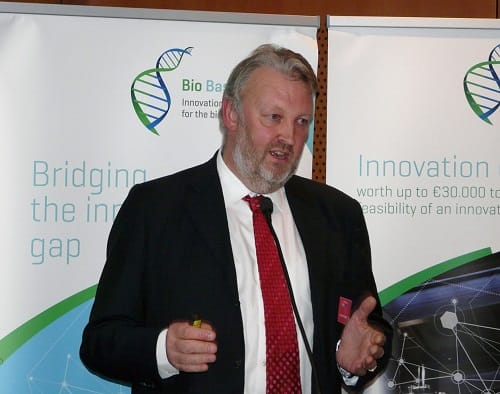The bioeconomy uses renewable resources instead of fossil resources. Biorefineries play a central role in intelligently converting biomass and waste, via efficient and innovative technologies, into a plethora of bio-based products such as food, animal feed, fibers, materials, chemicals and bioenergy. The bioeconomy is worth about 2 trillion euros and is responsible for over 22 million jobs in Europe. These numbers include agriculture and food production.
Dirk Carrez, director of the BIC, comments: “Supporting a biobased economy propels Europeans onto the path of reindustrialisation and sustainable growth. It builds on existing EU strengths and resources, while embracing technological and scientific excellence, and creating new and novel partnerships between industries that have thus far remained unconnected.”
Keep and apply knowledge in Europe
In 2014, the EU and the industry joined forces to kick-start a 10-year investment of €3.7 billion via a Public-Private Partnership on Bio-based Industries (BBI JU, http://www.bbi-europe.eu/). The BBI JU focuses on securing sustainable sources of biomass, creating new markets for bio-based products and optimizing and building new value chains and biorefineries.
The BBI JU is a new instrument at the European level that consists of two partners: the European Commission and the private Bio-based industries Consortium (BIC). The BIC represents about 80 industrial partners, around 200 associated members from universities and research centers, banks and regions.
Until recently, much of the research and development that took place in Europe was often utilized elsewhere in the world. The BBI JU tries to avoid this by focusing on the application of the entire value chain in Europe, from research to pilot production, manufacturing plants and commercialisation.
The BBI JU has also proven to be invaluable in raising awareness of the potential of the bio-economy with regard to different regions in Europe. Different regions have different opportunities to build a bio-economy based on feedstock, waste, agricultural crops, or forestry. Europe’s regions must begin to explore how they can use regional development funds and other finances to attract investment, and how they can develop new products and new markets.
Get funding!
Every year, the BIC drafts a working program for the bio-industry. This working program is converted into a call for organizations to receive funding by the BBI JU.
In June 2015, the BBI JU approved €120 million of new investments into projects based on the bio-economy (as result of the first call in 2014), and is launching a new €200 million call this year.
Three types of funding are available:
- Research projects: this category is focused on projects that aim to close gaps in the value chain. These projects, which include upscaling in pilot plants, generally receive around 3 to 5 million euros in funding.
- Demonstration projects are focused on ”proof of concept” models. Is the production process and the product sustainable and can it be commercialized? These projects generally receive about 5 to 8 million euros in funding.
- Flagship projects focus on making new innovative production plants. These projects may receive up to 20 to 25 million euros.
In addition, money is available through the European Investment Bank (EIB), Horizon 2020, structural funds and even private banks. Also Europe’s regions can grant subsidies for the development of infrastructure to support further investments. However accessing these funds remains an issue as funding is fragmented. In addition, the procedures involved, from one institution to the next or from one region to another, are different. The BBI JU is trying to harmonize and simplify these procedures. To support this initiative, the European Commission is organising on 9 and 10 November in Brussels the European Bioeconomy Investment Summit, an opportunity for all Belgian stakeholders to become more involved.
Bio-based economy in Belgium
Dirk Carrez points out the difference in the bio-based economy between Belgium and the rest of Europe: “In Belgium, no big bio-based companies, such as for example DSM or Roquette, exist and regional clusters are not well established yet. There are no big companies who perform private research here, except for Cargill or Solvay. Nevertheless, there are quite a few companies and organizations in Belgium who are very active in the bio-industry such as BioBased Europe (Gent), Cargill (Vilvoorde), De Smet Engineering (Waterloo), Dupont (Brugge), Oleon (Evergem), Solvay (Brussels), Südzucker (Tienen), Total (Antwerpen), Certech (Seneffe) and Greenwin, who represent the biobased SMEs of Wallonia.” Last year, the BBI JU funded research projects from UGent, VITO, Südsucker, Stora Enso (Ghent), the Inbiose project and a demonstration project of BioBased Europe (Ghent). “It is clear that the European Commission and the European Parliament are now aware of the potential that the bioeconomy holds. They are cooperating with the industry and other partners to realize that potential. Belgium should take advantage of these opportunities!” concludes Carrez.


